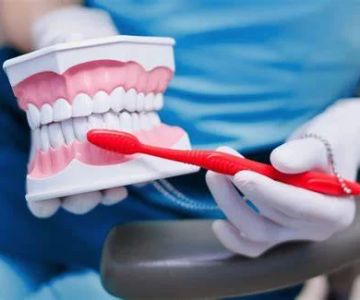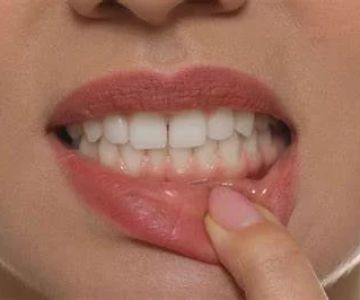Understanding the Impact of Certain Foods on Dental and Oral Hygiene
Dental and oral hygiene are essential parts of overall health, yet many people overlook how their diet can directly influence the condition of their teeth and gums. Certain foods, when consumed frequently or without proper care, can lead to dental problems such as cavities, gum disease, and enamel erosion. Understanding which foods cause these issues and how to mitigate their effects can empower you to maintain a healthy, radiant smile.
1. The Science Behind Food-Induced Dental Problems
The oral cavity hosts numerous bacteria that feed on food particles left behind after eating. When sugary or starchy foods remain on teeth surfaces, these bacteria metabolize them and produce acids. These acids attack the tooth enamel, leading to demineralization and eventually causing cavities. Over time, repeated acid exposure weakens the enamel, making teeth more vulnerable to decay and sensitivity.
In addition to cavities, certain acidic foods and beverages can erode enamel directly. For instance, citrus fruits and sodas are highly acidic and can gradually wear down tooth enamel if consumed excessively. This erosion not only damages teeth but also exposes dentin, increasing the risk of pain and infection.
2. Common Foods That Affect Oral Health Negatively
Some foods are notorious for their harmful effects on dental health. These include:
- Sugary Snacks and Candies: High sugar content fuels bacteria, accelerating cavity formation.
- Sticky and Chewy Sweets: Foods like caramel and gummy candies cling to teeth, prolonging acid attacks.
- Carbonated Soft Drinks: Combine sugar and acid, a double threat to enamel health.
- Starchy Foods: Bread, chips, and crackers break down into sugars and stick to teeth, feeding bacteria.
- Citrus Fruits and Juices: While nutritious, their acidity can erode enamel if consumed excessively.
3. Real-Life Case: The Candy Lover’s Cavity Battle
Consider the story of Sarah, a young woman from Texas who loved indulging in sweets daily. Despite brushing twice a day, she frequently developed painful cavities. A dental examination revealed severe enamel erosion and multiple decayed teeth, primarily caused by her constant consumption of sticky candies and sugary sodas. After adjusting her diet and practicing better oral hygiene, Sarah gradually restored her dental health with the help of her dentist.
4. How to Protect Your Teeth While Enjoying Your Favorite Foods
Maintaining good oral hygiene alongside a balanced diet is key to preventing food-related dental problems. Here are some effective tips:
- Brush and Floss Regularly: Brush at least twice a day with fluoride toothpaste and floss daily to remove food debris and plaque.
- Rinse or Drink Water After Eating: This helps wash away sugars and acids from your teeth.
- Limit Snacking Between Meals: Frequent snacking increases acid attacks on enamel.
- Choose Teeth-Friendly Snacks: Fresh fruits, vegetables, nuts, and cheese can protect enamel and stimulate saliva flow.
- Use Fluoride Products: Fluoride strengthens enamel and can reverse early decay.
- Visit Your Dentist Regularly: Routine check-ups and professional cleanings help identify and prevent problems early.
5. The Role of Oral Hygiene Beyond Brushing
Besides diet and brushing, maintaining oral hygiene includes tongue cleaning and using antiseptic mouthwashes to reduce harmful bacteria. Saliva plays a crucial role in neutralizing acids, so staying hydrated is also essential. People with dry mouth conditions should consult their dentist for advice, as lack of saliva can worsen food-related dental issues.
6. Positive Foods That Support Dental Health
Not all foods harm your teeth. Some actually promote oral health, such as:
- Crunchy Fruits and Vegetables: Apples, carrots, and celery help clean teeth surfaces and stimulate gums.
- Dairy Products: Cheese, yogurt, and milk contain calcium and phosphates that strengthen enamel.
- Green and Black Teas: Contain antioxidants that may reduce bacterial growth.
Incorporating these into your diet can enhance your dental defense and overall oral hygiene.
7. Final Thoughts on Managing Food Impact on Oral Health
While certain foods can cause dental and oral hygiene problems, understanding their effects allows for smarter choices and proactive care. Balancing enjoyment of food with good oral hygiene habits and regular dental visits ensures a healthy mouth and a confident smile. For personalized advice and high-quality dental services, you can always turn to trusted providers such as Dentistry Toothtruth.







 Westgate Dental Arts3.0 (2 review)
Westgate Dental Arts3.0 (2 review) Coventry Family Dental4.0 (247 review)
Coventry Family Dental4.0 (247 review) Familia Dental3.0 (1028 review)
Familia Dental3.0 (1028 review) Dr. Daniel S. Fife, DDS4.0 (31 review)
Dr. Daniel S. Fife, DDS4.0 (31 review) Dentistry At Suburban Square: Michael I. Wollock, DMD4.0 (1228 review)
Dentistry At Suburban Square: Michael I. Wollock, DMD4.0 (1228 review) Comfort Care Dental4.0 (1156 review)
Comfort Care Dental4.0 (1156 review) The Importance of Oral Health Education During Pregnancy for a Healthy Pregnancy
The Importance of Oral Health Education During Pregnancy for a Healthy Pregnancy Why Skipping Dental Checkups Can Lead to Bigger Oral Health Problems
Why Skipping Dental Checkups Can Lead to Bigger Oral Health Problems Best Tips for Brushing Your Teeth Properly for Healthy Gums: Essential Techniques for Oral Health
Best Tips for Brushing Your Teeth Properly for Healthy Gums: Essential Techniques for Oral Health Advantages of Porcelain Dental Restorations
Advantages of Porcelain Dental Restorations How Can Diabetes Cause Tooth and Gum Problems? Preventing and Managing Oral Health Issues
How Can Diabetes Cause Tooth and Gum Problems? Preventing and Managing Oral Health Issues Healthy Habits for Promoting Good Oral Health and Hygiene: Tips for a Healthy Smile
Healthy Habits for Promoting Good Oral Health and Hygiene: Tips for a Healthy Smile